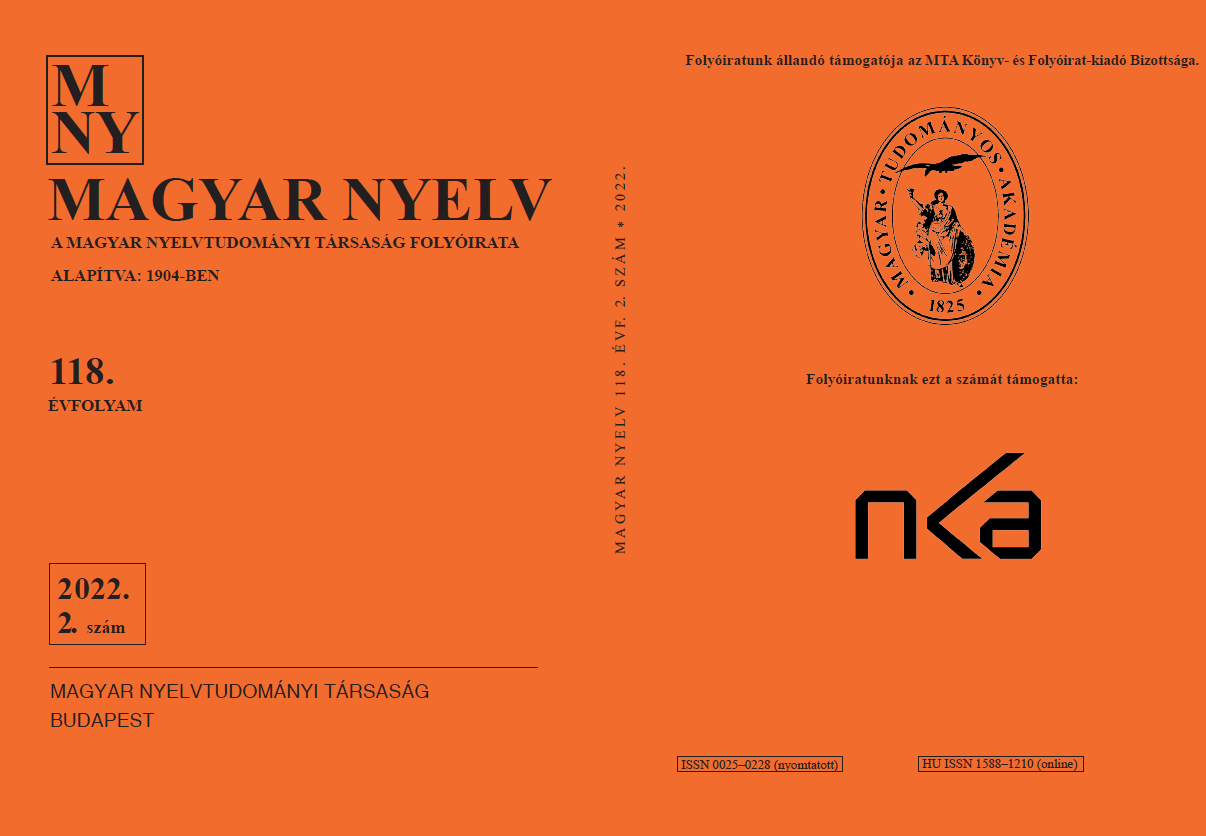Ferenc Herczeg’s “linguistic” career
Herczeg Ferenc nyelvváltásáról
DOI:
https://doi.org/10.18349/MagyarNyelv.2022.2.159Keywords:
language shift, adaptation, bilingualism, social, cultural, linguistic assimilationAbstract
The unique life of Ferenc Herczeg, who was a banned author between 1945 and 1980, can be summarised in a nutshell as follows: how the German-speaking boy from the Swabian region of Banat, becomes the Hungarian playwright who put Hungarian drama on the path to European success, a committed writer of national endeavours, and the creator of a successful Hungarian prose and dramatic oeuvre. The subject of the research is to explain where and how Ferenc Herczeg’s „language program” became so successful, since „There was no other native speaker who learned Hungarian as well as Ferenc Herczeg” (Hegedűs). Examining the language path, the research may explain the adaptation considered to be the key to success and the contribution of the author’s bilingualism to the foundation of success. In the case of Herczeg, social, cultural and linguistic assimilation is so successful that it gives rise to countless speculations. The majority of the criticism seeks his social adaptation, and reflects less on linguistic assimilation. The item to prove is that Herczeg, a German-speaking boy of Swabian descent, became Hungarian because of the literature-centric Hungarian culture.
Downloads
Published
Issue
Section
License

This work is licensed under a Creative Commons Attribution-NonCommercial-NoDerivatives 4.0 International License.
Magyar Nyelv is a Diamond Open Access periodical. Documents can be freely downloaded and duplicated in an electronic format, and can be used unchanged and with due reference to the original source. Such use must not serve commercial purposes. In the case of any form of dissemination and use, Hungarian Copyright Act LXXVI/1999 and related laws are to be observed. The electronic version of the journal is subject to the regulations of CC BY-NC-ND (Creative Commons – Attribution-NonCommercial-NoDerivatives).
The journal permits its authors, at no cost and without any temporal limitation, to make pre-print copies of their manuscripts publicly available via email or in their own homepage or that of their institution, or in either closed or free-for-all repositories of their institutions/universities, or other non-profit websites, in the form accepted by the journal editor for publication and even containing amendments on the basis of reviewers’ comments. When the authors publicize their papers in this manner, they have to warn their readers that the manuscript at hand is not the final published version of the work. Once the paper has been published in a printed or online form, the authors are allowed (and advised) to use that (post-print) version for the above purposes. In that case, they have to indicate the exact location and other data of the journal publication. The authors retain the copyright of their papers; however, in the case of an occasional secondary publication, the bibliographical data of the first publication have to be included.



